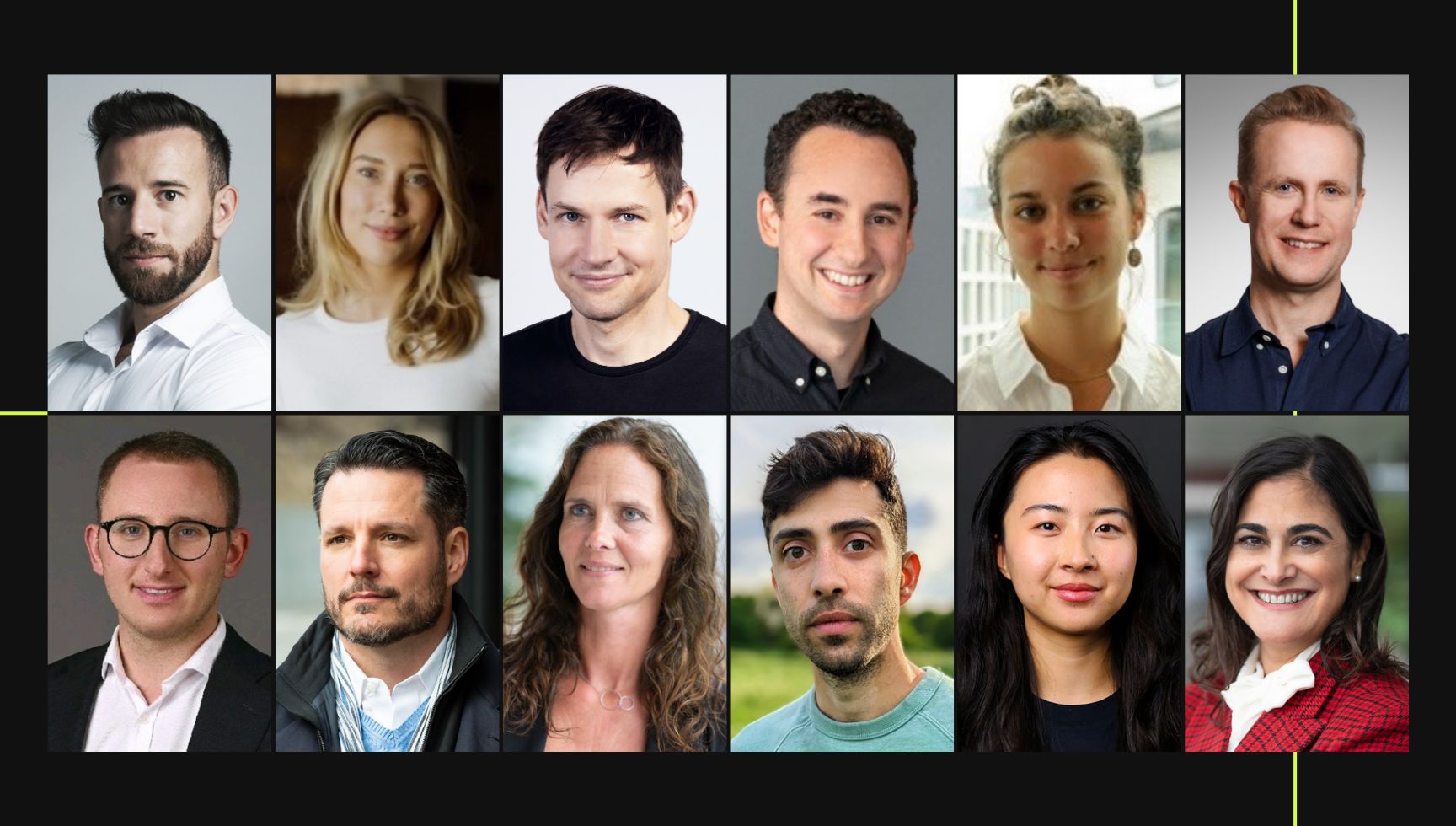Impact investing at a crossroads
From pitch decks to portfolio strategies, ‘impact’ is a word many now claim, so much so that it is at risk of becoming diluted and its meaning is losing clarity.
Over 3,907 organizations currently manage $1.571 trillion USD AUM in impact investing worldwide, representing 21% compound annual growth since 2019, according to The Global Impact Investing Network.
As more capital flows into climate and mission-driven ventures, some investors and startups alike are asking: has the term ‘impact investing’ become too broad to be meaningful? And what does it really mean?
At its core, impact investing is about using money as a force for good, backing companies and projects that deliver measurable social or environmental benefits alongside financial returns.
Unlike philanthropy, it seeks outcomes and profits. But in a world where nearly every investor claims to care about impact, what does real commitment look like and how do we separate signal from noise?
We ask 12 leading investors: Has the term 'impact investing' become too broad to be meaningful and what it means to be an impact investor.

Optimising Outcomes
Yannick Ritschel, Director at Fondation Valery

“Impact, in itself, is neutral, it simply signals a change. In that sense, all investments are impactful. But for the term impact investing to retain meaning, that impact must be intentional, measurable, and aligned with a desired outcome.
Impact is not the goal - it’s the pathway toward systemic change. What matters is the end state we aim to reach, and the measurable progress we make toward it. That requires a clear strategy, a theory of change, and rigorous assessment frameworks, not just outputs, but outcomes.
At its core, being an impact investor means asking not only “What good am I doing?” but “What is the best possible use of this capital?” True impact lies in the opportunity cost—the gap between what we choose to do and what we could do. Bridging that gap is how we unlock capital’s full potential to address urgent global challenges.
At Fondation Valery, we are committed to unlocking the full potential of capital to drive measurable, lasting change.”
Dual Impact
Philipp Buddemeier, General Partner at Marvelous

“Impact investing isn’t one-size-fits-all – it spans philanthropic impact-first capital, ESG-integrated funds, and “win-win” ventures that deliver both impact and profits. In practice, this means some investors put mission above returns (recycling capital for social good), others simply screen for ESG risks, and a new breed backs pioneering startups solving big problems profitably.
The latter is where true dual impact happens: companies turn waste to value, cut carbon, or reinvent materials as their core business.
The result? Scalable solutions for global challenges - and competitive returns that prove doing good and doing well can go hand in hand - exactly the kind of outcome firms like Marvelous DeepTech VC are built to support.”
Growth With Purpose
Cecilia Ma, Investor at Norrsken VC

“Being an impact investor means backing the founders fixing our biggest problems. Not as a side effect, but by design. Solving existential challenges is the clearest path to lasting demand and long-term returns.
These companies reshape entire industries, so their growth journeys look nothing like those of Uber or Klarna. Longevity is measured in decades, so scaling real solutions takes more than blitzscaling.
That’s why we’ve built a growth platform with a global network of top-tier advisors and partners – all focused on helping founders navigate the complexity from moving fast and fixing things.”
Scale Shapes Impact
Sebastien Marang, Growth Private Equity Investment Manager at Swisscanto

“We assess climate impact by measuring potentially avoided carbon emissions over our investment life, discounted to align with 1.5°C and 2°C scenarios, and normalized to capital deployed. In essence, we define impact as a function of timing and volume, which is driven by scale and carbon equivalence.
As a result, impact solutions should address large markets, be scalable & capital-efficient, and focus on high equivalence e.g., methane, herbicides - all characteristics of great growth, or buyout investments.
Yet, in private equity, impact investing is not just about selection but mostly the value creation that follows from boardroom to plant floor.”
Impact at the HackSummit in NYC
Want to get to know local, national and international Climate Deep Tech talents, then the HackSummit in New York this December is the place to be.
We’ll all be heading to the big apple primed for two day’s of discovery and deal making before the end of the year. Let’s make sure you’re in the room too.
The speaker line up includes a powerful lineup of Founders:
Liz Dennett of microbial mining startup Endolith
Roman Teslyuk of AI mineral exploration EARTH AI
Hadar Ekhoiz Razmovich of texturizing startup Meala
Ted Feldmann of mineral exploration technology Durin
Will O’Brien of robotics stewardship technology Ulysses
Sampriti Bhattacharyya of Electric Boat innovator Navier
Augustus Doricko of drone-based cloud seeding Rainmaker
Alfred Johnson of clean energy capital markets platform Crux
Efficiency Enables Impact
Alex Behar, Partner at Buoyant Ventures

“Buoyant’s thesis is that meaningful long-term impact depends on financial sustainability. This means that startups need to deliver core business value (lower costs, reduce risk, increase efficiency, increase quality).
Core to our thesis is the acceptance that we are already feeling the consequences of climate change, which are expected to accelerate over the near-term. We believe that digital solutions can scale existing technology faster, buying time for deeptech solutions to be commercially ready.
For example, RaptorMaps is using AI to improve the operational efficiency of solar farms that delivers financial value to all stakeholders while also accelerating the energy transition.”
Measurable Market Change
Estia Ryan, Principal at Eka Ventures

“Eka defines its impact focus as only investing in companies where the product or service delivers a direct and measurable societal impact in parallel with commercial value.
We believe the category leading companies of the future will positively transform both the economics and the societal impact of the industries they operate in.
Examples of portfolio companies include: (1) Hived, an e-commerce parcel delivery company that is using technology to build a zero-emission, low cost but high-quality service, or (2) Axle, a company building the infrastructure layer that will control, aggregate and optimise a consumer’s energy assets.”
Context Creates Clarity
Jonas Bergqvist, Investment Manager at Almi Invest GreenTech

“To us, impact investing means backing solutions that make a measurable, material difference, especially in environmental systems. But beyond CO₂, impact is contextual and relative.
In nature-based investing, what matters is not just what you build, but what pressure you avoid. Our updated Nature Thesis reflects this: we evaluate startups based on how effectively they reduce key ecological pressures, on biodiversity, water, land use, within their specific context.
That clarity is our edge. We believe true impact starts with understanding how negative impact is reduced - and that context matters.”
Biotech: Where Impact Meets Return?
Annick Verween, Head of Biotope at Biotope Ventures

“At Biotope Ventures, being an impact investor means aiming for two kinds of return: positive impact on planetary health and strong financial performance. It’s an and/and story: we invest in biotech startups with the potential to drive systemic change AND the business model to scale it.
We don’t work with a fixed set of KPIs but look at how transformative a technology is within its market. We believe biotech holds the key for the kind of systemic shift the planet urgently needs. That’s the kind of impact we're looking for.”
Systemic Impact First

Elena Stark, Head of Impact and Platform at AENU
“The term ‘Impact investor’ is used loosely but at AENU, it has sharp edges. We invest where impact drives systemic change and commercial upside. Our Systemic Impact Framework helps identify ventures where solving climate challenges unlocks new markets, shifts infrastructure, or reshapes value chains.
We look for deep, long-term outcomes with high additionality, where impact is inseparable from scale and success. With impact carry and aligned incentives, we back founders building businesses that don’t just grow, they transform. For us, impact is not the constraint. It’s the opportunity.”
Outcomes Over Optics
Darren Clifford, Managing Director at Adapt [us] Capital

“To me, an impact investor is someone who considers the outcomes for society alongside financial returns. The term isn’t too broad, it’s just that people struggle to live it – either the focus is purely financial returns playing lip service to impact, or it is only impact without an approach to how the economics will work.
Indicators that we look for that we are operating in the impact space is if we say no to projects with great returns because they don’t improve the quality of life for humanity. If it never feels like you have to make trade-offs it probably isn’t work.
At Adapt [us] Capital we optimize for profits but have an added constraint that we only invest in companies that improve the quality of life for humanity. We use a 3rd party to help us with this to ensure it isn’t biased.”
Shift What’s Possible
Dominic Falcao, Founding Director, Deep Science Ventures

"For me, 3 kinds of impact matter:
1) Whether investment changes what’s possible in the most important societal outcomes.
2) Whether investment changes how well we understand the crucial phenomena in the world.
3) Whether investment changes the gradient of progress in either of the other two.
If investment has any of these effects, it is an impact investment.
Very clearly, changing possibility, understanding, and pace unlock huge advantages, so the idea of defining impact investment by expected return has always been nonsensical to me. Equally, just because it’s related to health or climate doesn’t telegraph impact."
Upskilling For Impact

Elena Bou, Executive Board Member and Innovation Director at InnoEnergy
“At InnoEnergy, impact investing means supporting innovations that accelerate the net-zero goals, such as green hydrogen and battery recycling.
These solutions deliver clear environmental and social benefits, but that doesn't mean sacrificing financial returns. While others often shy away from the risks involved, we see an opportunity for long-term value.
These are capital-heavy technologies that need time, patience, and conviction to scale. It also means investing in people.
That's why we're re-skilling the workforce and preparing a next generation of leaders in the energy sector - not only to accelerate new companies, but equally to ensure that people benefit from the transition.”

